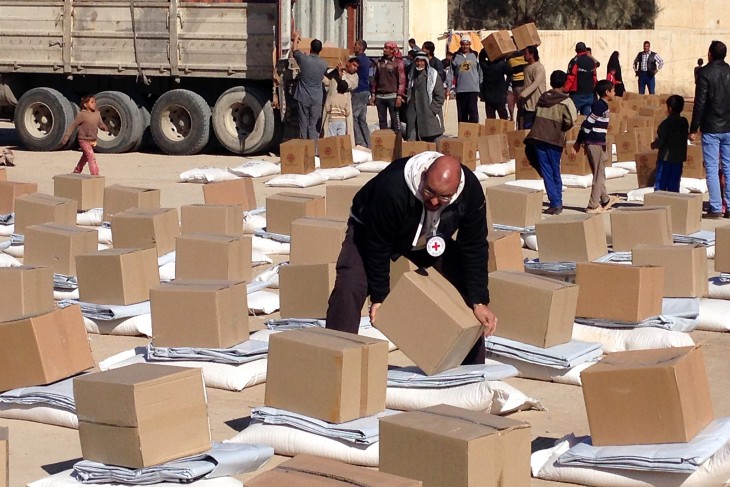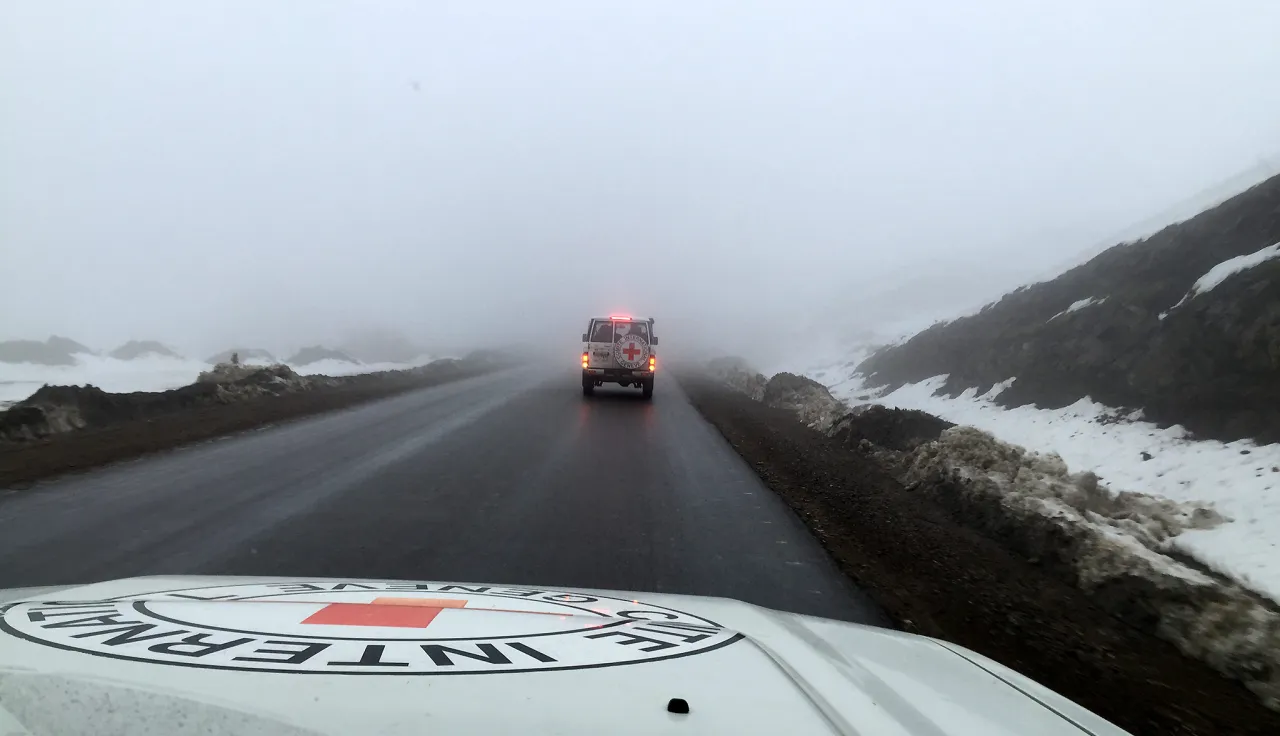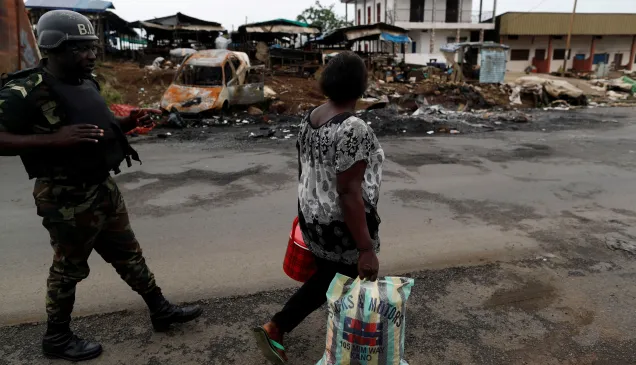Expanding conflict
Baghdad / Geneva (ICRC) – As a result of the recent widening of the conflict in Iraq, many more people – numbering in the hundreds of thousands – have been affected. The provinces of Al-Anbar, Ninawa, Salah al-Din, Diyala, and Kirkuk have been under heavy attack, driving more people to abandon their homes to seek shelter in safer areas. This is in addition to the over two million people who had already been displaced since last year. People in these provinces have virtually no access to basic services, and essential supplies reach them only irregularly.
"The displaced people have barely survived the harsh winter," says Patrick Youssef, the head of the ICRC's delegation in Iraq. "Going home is not an option for most of them. Those who do, return to badly damaged houses and radically disrupted supplies of water and electricity. Hospitals are either damaged or working at well below their usual capacity. Unexploded munitions are a huge threat: they are strewn all over the areas where fighting is particularly heavy."
Looming humanitarian needs
The broadening of the conflict to populated areas along the Tigris and Euphrates rivers will create more humanitarian needs. If major cities like Mosul come under fire again, thousands more people will have to flee. Because security conditions are so uncertain, many areas remain out of reach for humanitarian organizations, and large numbers of people will be without help when they need it most.
The ICRC reminds all parties to the conflict to take all precautions necessary to minimize loss of civilian life and damage to property, treat detainees with dignity, facilitate access to health care for everyone, and ensure that the work of medical staff and hospitals proceeds unhindered. Humanitarian workers must be allowed to safely reach people who need help, and all possible measures should be taken to protect people from attacks and displacement.
ICRC activities
Difficulties of access notwithstanding, the ICRC has been striving to assist displaced people throughout Iraq, and the communities hosting them: since the beginning of the year, over 300,000 people have received essential aid. Several relief operations have been carried out across front lines to take food, water, and other basic items to people, and essential medical supplies to the wounded and the sick.

Al Rahaliya, Iraq. ICRC staff prepare supplies for distribution to families displaced from Anbar. CC BY-NC-ND / ICRC / A. Adnan
Since the beginning of the year, the ICRC has:
- provided one-month food rations and other essential relief items for over 130,000 displaced people in 12 provinces, in such places as Baaquba, Ramadi, Al Ishaaqi, Dujeil, Hibhib, Msayyib Al Askari Kirkuk, Zummar, Qaratapa, Mandily, Suleiman Beg, Penjween, and Dohuk, and over 35,000 people were given blankets and winter clothing to cope with the severe cold
- supplied enough life-saving medical and surgical supplies to 12 health-care centres for treating more than 33,000 people (the delivery of emergency medical supplies from nearby Erbil to Kirkuk, when that city came under attack on 30 January, for example)
- completed key repairs to the water and electrical supply systems of the hospital in Fallujah, to ensure the functioning of that battered city’s main medical facility
- treated over 2,600 persons with disabilities at its physical rehabilitation centre in Erbil, and supported eight other centres in Iraq
- organized four training sessions for 110 health staff in Diyala and Baghdad provinces to strengthen their basic first-aid and life-saving skills
- continued trucking in water for displaced people, and repaired or upgraded nine water facilities – in fact, some of these were newly installed – in six provinces, in the towns of Saqlawiya, Al Madina Al Siyahiyyah, Rasheed, Kirkuk, Khanaqin and Jbeila, benefiting over 130,000 people
- visited eight prisons where more than 2,300 detainees were held, informed families – through more than 4,000 phone calls – about the procedures for visiting their loved ones in prisons, and passed written messages between the detainees and their families
- facilitated the exchange, between Iran and Iraq, of the identified sets of remains of 46 Iranian and three Iraqi soldiers
- provided expertise for creating Iraq’s national committee for international humanitarian law, to promote this body of law and compliance with it
- periodically conducted information sessions on humanitarian law and humanitarian principles for various communities, beneficiaries and armed forces and security forces personnel from Iraq and the Kurdistan region.
The ICRC's offices in Iraq are in Baghdad, Basra, Dohuk, Erbil, Kirkuk, Khanaqeen, Najaf, Ramadi and Sulaymaniyah.
For further information, please contact:
Ralph El Hage, ICRC Baghdad, tel: +964 0790 191 6927
Sitara Jabeen, ICRC Geneva, tel: +41 22 730 24 78 or +41 79 536 92 31
See also :
- Latest Iraq news
- Iraqui cities




